-
Genealogy & Names
-
Tourist Information
-
Culture & Reference
CHRISTMAS GIFTS FROM IRELAND - VISIT IrishNation.com Only 12 Days To Go! |
|
January 2024 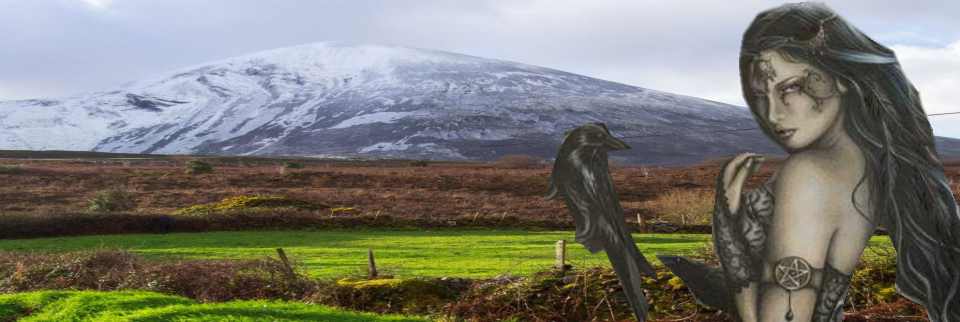
The Morrigan Image from Free Photos Of Ireland |


FREE WORLDWIDE DELIVERY FOR A LIMITED TIME find out more |

| Popular Articles from Recent Newsletters: |


|
The recent ruling by the Supreme Court of Ireland has garnered relatively little media attention here in Ireland, despite the potentially massive consequences.  The Widow's or Widower's Pension is a Social Welfare payment that the surviving person in a marriage is entitled to upon the death of their spouse. The important word here is 'marriage' as the laws that implemented this State payment specifically excluded couples who were not married.
The Widow's or Widower's Pension is a Social Welfare payment that the surviving person in a marriage is entitled to upon the death of their spouse. The important word here is 'marriage' as the laws that implemented this State payment specifically excluded couples who were not married.
The Irish Supreme court has now ruled that any such prohibition is illegal and unconstitutional and has referred the matter back to the Irish Government so that they can introduce changes to the laws to bring them in line with the Irish Constitution. The case before the Supreme Court centered around a family from County Tipperary, consisting of a man and woman and their three children that they had, and raised together. The payment to the appellants in this case is to be back-dated to when they first applied for it. That is to say, the family was denied the payment in 2021 but will now be paid the full amount due since then. The payment will thus be back-dated. The little-cited ramifications of this ruling could be enormous. It remains to be seen if the potentially thousands of families and individuals who were refused this payment since it was introduced in 1936 can now claim that the payment that was rightfully due to them be now paid, presumably with interest. The Pension was first introduced for widows in 1936, then extended to widowers in 1994 and further extended to surviving civil partners in 2011. That is a debt that could amount to Billions of Euro. It is quite clear that the purpose of the laws governing this payment were intended to promote the institution of marriage. The High Court Judge who refused the claim stated as much. But by failing to support Citizens who have a family unit that is every part as substantial as those of married couples, the Irish State has been guilty of religion-based discrimination. That is the very definition of Sectarianism. Sincere congratulations, respect and gratitude are due to the family who brought this issue out into the open. Johnny O'Meara and his three children had enough to be coping with when the children's mother, Michelle Batey, died of Covid in 2021. By disgracefully refusing them their obvious claim to this Pension payment (while simultaneously awarding it to legally married couples), the Irish State has once again demonstrated it's appalling history of discrimination and Sectarianism. Successive Governments and Political Parties have for nearly a century sustained a veritable shrine to a fanatical and near-fundamentalist religious ethos that has yet to be fully purged from our society and our laws. This was and continues to be disgraceful. The act of shining sunlight can be a hard task. We owe this family our gratitude. A survey by The Irish Times Newspaper has revealed that migration is now the biggest issue occupying the minds of Irish voters. Of course this is the same issue that has affected pretty much every nation in Europe, in Canada, USA, Australia and beyond. 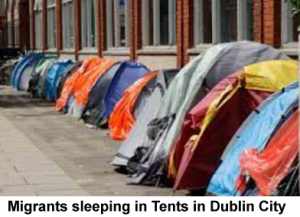 The reason why it has suddenly risen to the top of the Irish political agenda is that the previous biggest issue of the last decade is now in danger of overwhelming parts of Irish society.
The reason why it has suddenly risen to the top of the Irish political agenda is that the previous biggest issue of the last decade is now in danger of overwhelming parts of Irish society.
That issue is of course housing, or rather the lack of it in Ireland. Despite claims by the Irish Government that the scale of house and apartment building has been ramped up in recent years, this is against a backdrop of practically zero house building for years, in the wake of the economic crash of 2009. The war in Ukraine has resulted in 96,338 citizens from that war-torn country being accommodated in houses, hotels, army camps and even in tents (as of Oct. 2023, via CSO.ie). Combined with a general increase in both genuine asylum seekers and illegal economic migrants after the Pandemic and the result is a housing market that is completely distorted. The same goes for the rental market where story after story in newspapers and on radio describe young couples, teachers and nurses, paying thousands to 'vulture funds' in lieu of rent, denying them any opportunity to ever be able to afford to buy a home. It is a sad function of Capitalism that in times of hardship it is always the poorest, the migrants and those who are in any way different who end up being blamed. It should surprise no-one therefore, that migration in Ireland is now the single biggest issue among the Citizenry. |

|
||||

|
note: Cuchulainn, pronounced 'coo-cullen' Ériu, pronounced 'air-ooh' Maeve, prononced 'mayve' The Morrigan (also Mórrigan or Morrigu) is one of the most mysterious figures in Irish mythology. 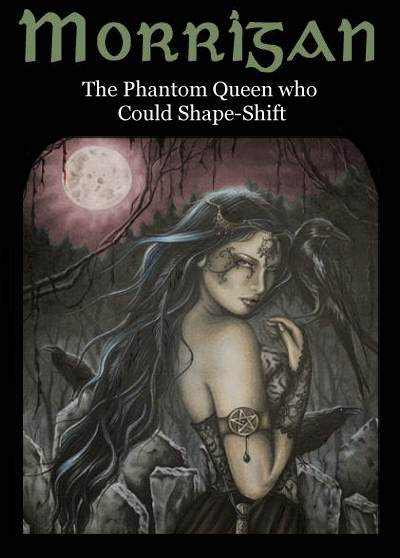
The name Morrigan means 'phantom queen' (or 'great queen') and describes a Goddess from old Ireland that was very associated with war, destiny, fate and death. She was a shape-shifter and frequently appeared as a black crow, an ominous sign for those who saw her prior to battle. Legend has it that the Morrigan was in fact a triad of sisters, often named as Badb, Macha and Nemain, while the Morrigan is also remembered as the triad of the land Goddesses Ériu, Banba and Fódla. Such was her influence over the land of Ireland that it is from Ériu that the word 'Eire' and 'land' ('Ériu-land'), developed into 'Ireland', in effect naming the country! The most famous tales of the Morrigan always center around Cuchulainn at the time he defended Ulster from the army of Connaught, led by Queen Maeve. This famous battle raged for months and cost countless lives. By invoking the right of single combat Cuchulainn was able to defeat warrior after warrior. It is at this point that the Morrigan attempted to seduce Cuchulainn, offering herself to him before battle. But Cuchulainn refused Morrigan, despite her great beauty. The Morrigan was outraged and used her shape-shifting powers to transform into an eel, tripping Cuchulainn as he traversed a fjord. The hero recovered though and lashed out at the eel, breaking its ribs. She then transformed into a wolf, scaring cattle and driving them towards Cuchulainn who responded with a sling-shot, blinding the Morrigan in one eye. Once again the Morrigan transformed! This time she changed into a heifer leading the stampede towards Cuchulainn. But once again the famed prowess of the greatest mythic figure in Irish history thwarted her evil ambition. He fired away another slingshot, breaking her leg forcing the Morrigan into a humbling retreat. One that she would never forget. After his victory in battle Cuchulainn traveled from the battle-site where he encountered an old woman milking a cow. Again the Morrigan had transformed. The haggard woman was blind in one eye, with damaged ribs and a broken leg but despite having inflicted these wounds Cuchulainn did not recognize her new form. She tricked him by giving him three sips of milk. He blessed her on every occasion and when each sip had been taken the wounds inflicted on the Morrigan were healed. By Cuchulainn's own blessings! The Morrigan would again appear before Cuchulainn shortly before his death. On his way to yet another battle he met a woman washing bloody armor, a sure and terrible portent of impending doom. Sure enough Cuchulainn was finally conquered. Despite being mortally wounded he tied himself to a boulder with his own innards, in the hope that his upright appearance would continue to terrify his enemies. It is only when a black crow finally landed on his shoulder that his death was finally revealed. The Morrigan also appeared in other mythic adventures. In the Lebor Gabála Érennn (The Book of the Taking of Ireland) of the twelfth century the Morrigan is named among the Tuatha De Danann as a daughter of daughter of Ernmas, who in turn was a granddaughter of Nuada. In the 'Battle of Mag Tuired' (The Battle of Moytura), the Morrigan is said to have mated with the Daghda, with one foot on each bank of a mighty river and later promised to summon the magicians of Ireland to aide the Tuatha De Danann in their battle against the Fomorians. In the battle itself the Morrigan recited a poem or chant that so terrified the Fomorians that they were driven back into the sea. The incredible Morrigan! The shape-shifting Phantom Queen. Read more amazing Stories of Irish Legends and Mythology. |


find out more |

|
Roger Casement was born in Dublin on September 1, 1864. He served for many years as a distinguished British Consul in Mozambique, Angola and the Congo Free State (He came to further prominence in the latter, forcing the King of Belgium by sheer diplomacy and bluff, to re-consider the appalling treatment of the Congolese people in 1908.), and later Brazil. 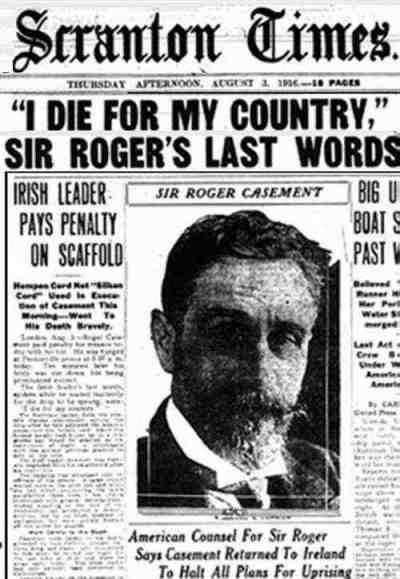 For his services to Britain he was awarded a knighthood in 1911, retiring from the diplomatic service through ill-health and settling once more in Dublin. Despite his proven loyalty to the Crown, however, he chose to take up the Republican cause, helping to establish the Irish National Volunteers in 1913.
For his services to Britain he was awarded a knighthood in 1911, retiring from the diplomatic service through ill-health and settling once more in Dublin. Despite his proven loyalty to the Crown, however, he chose to take up the Republican cause, helping to establish the Irish National Volunteers in 1913.
He viewed the outbreak of war between Germany and the Allies in August 1914 as an opportunity to drum up support for the Republicans, calling them to arms. He travelled to Limburg, Germany to recruit Irish prisoners of war there in prison camps, with the idea of obtaining their release so that they could return to Ireland and fight the British there as a brigade. But the small number who put themselves forward as being prepared to respond gave him little encouragement, all no doubt aware that should the rebellion fail they would be liable for the death penalty. Nevertheless, he set about securing a shipment of arms for the volunteers in Ireland. In all of these German negotiations two allies assisted Casement: Sergeant Daniel Bailey (or Beverly) and Capt. Robert Monteith, of ‘A’ Company 1st Battalion of the Irish Brigade. Monteith was by far the most able, having served 16 years in the British Army, honourably and with great distinction in several campaigns and battles, from India, the Boer War, Cape Colony and the Orange Free State. On being honourably discharged in 1911 he worked for several years as a civil servant at Dundalk, eventually marrying a widow with three children. What turned him from a proud retired British soldier into a member of the Irish Citizens’ Army was witnessing several incidents of brutality and savagery meted out by Dublin Metropolitan Police and the Royal Irish Constabulary for no apparent reason. So the brigade idea foundered but the shipment of rifles was still promised. They would provide a German cargo vessel, formerly the Libau, now disguised as a Norwegian trader Aud and 20,000 Russian (Mosin-Nagant) 1891 rifles with ammunition...but no German officers or expertise. Casement protested that the provision should be for at least 100,000 rifles but the Germans baulked at this, saying the vessel would be unable to cope with even half that amount. Before leaving Germany Casement handed his personal papers to a good friend, Dr Charles Curry, staying with him at Riederau on the Ammsee, Zungerbecken Lake, Upper Bavaria. He embarked for Ireland with Bailey and Monteith in the submarine SM U-20 a day after the Aud sailed but not before sending another recruit, Irish-American John McGoey, to travel quickly via Denmark to Dublin with orders to ‘get the Heads in Ireland to call off the Rising and merely try to land the arms and distribute them’. McGoey never reached Ireland nor did his message – it is believed he rejoined the Merchant Navy later that year and, surviving the war, returned to the United States, where he died on a building site in 1924. Meanwhile the submarine’s departure was delayed, developing engine problems and they had to be transferred to another submarine, SM U-19. According to Monteith’s later statement Casement believed the Germans were toying with him from the start, providing inadequate aid that doomed the rising to failure. He desperately wanted to reach Ireland before the shipment of arms and convince Eoin McNeill (whom he believed was still in control and with whom he had co-written the Rising’s manifesto) to postpone the Rising. But In fact, the arms shipment never reached Ireland. British intelligence had intercepted messages between the Dublin leaders and the German embassy in New York. The Aud was apprehended by HMS Bluebell late afternoon on Good Friday. The boarding crew reported that although it was registered Norwegian all the crew were speaking German. Ordered into Queenstown (Cobh) harbour on the morning of Saturday April 22 the Aud’s skipper, Captain Karl Spindler, instead scuttled the vessel by pre-set explosive charges, where it still lies at a depth of over 20 fathoms. On April 21 1916, three days before the Easter Rising in Dublin, the SM U-19 was at the agreed rendezvous off Banna Strand, Tralee Bay, County Kerry but found the promised boat and pilot not there. Unable to risk exposure and capture, the sub commander urged them to use the sub’s emergency collapsible dinghy and row ashore. They reluctantly complied but Casement, Monteith and Bailey were not sailors and the sea was choppy; consequently they were all wet when they finally made it to the beach. The experience brought on a recurrence of Casement’s malaria that had plagued him since the Congo and he could not continue; he was too weak and it was decided they take shelter at McKenna’s Fort in Rathoneen, Ardfert. Monteith and Bailey left Casement there and went to get aid and transport from some local volunteers. But Casement was found by the police, arrested on charges of treason and espionage against the Crown and swiftly returned to London. He was actually being interrogated on Easter Monday when news of the Rising was published and by the end of the week any support he might have had from the British public had plummeted. Ironically he was presumed to have been the instigator of the rebellion, not its dissuader. His trial proved something of a sensation, being in the middle of a war with the very same adversary. Perhaps this is why the Government struggled to make a good enough case on which to prosecute, Casement’s defence being that any offence – if case there be – had been committed in Germany. The very Act brought against him was over 500 years old and as such specifically applied to activities committed on English soil. The 1351 Treason Act stated that – in the original Norman-French text – treason was if ‘a man do levy war against our Lord the King in his realm, or be adherent to the King’s enemies in his realm, giving them aid and comfort in the realm, or elsewhere’. The problem lay in those last two words, ’or elsewhere’. It had always been assumed that treason could only be committed within the realm, ‘the elsewhere’ applying just to the ‘comforting’ of the King’s foes. But Casement had not ‘levied war within the realm’. To be clear, he had been arrested trying to stop the planned Easter Rising, having been convinced whilst in Germany of its almost certain failure. The court ruled otherwise; the presence of the comma in the text of the act associated the ‘or elsewhere’ with everything that went before it in the sentence. So, by being elsewhere when he consorted with the enemy, Casement could be prosecuted for treason. Casement himself wrote later: “It looks like I am to be hanged on a comma.” His speech from the dock when sentence was passed has been described as one of the greatest ever delivered and, like other Irish leaders of the time, inspired generations across the globe against the British and injustice. W.B.Yeats composed two poems on Casement in support of his cause. Despite robust argument in court the defendant was found guilty and sentenced to be hanged at Pentonville Prison in London on August 3 1916. Whilst waiting for the end he converted to the Catholic faith. “I go to my death,” he said, “with the body of God as my last meal.” After his death the state executioner, Albert Ellis, recalled: “He appeared to me the bravest man it fell to my unhappy lot to execute.” |


find out more |

|
We like to believe in an ordered universe and have learned to live in a world where laws just about govern everything around us. 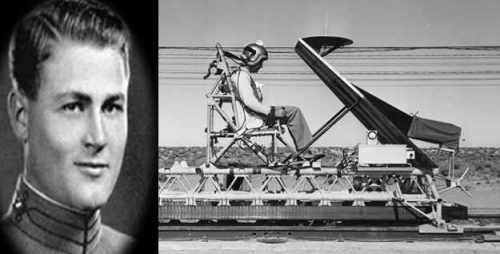 I joined the RAF as a lad just after the war I was amazed (bemused is probably more apt) by the number of laws that seemed to control and disrupt my own particular little (radio school) universe: Boyle’s Law, Kerchoff’s Law, Fleming’s Left-Hand Rule… the Law of Diminishing Returns.
I joined the RAF as a lad just after the war I was amazed (bemused is probably more apt) by the number of laws that seemed to control and disrupt my own particular little (radio school) universe: Boyle’s Law, Kerchoff’s Law, Fleming’s Left-Hand Rule… the Law of Diminishing Returns.
But Murphy’s Law (sometimes referred to irreverently as Sod’s Law) came about not by brain-storming sessions over the midnight oil or slide-rule calculations and chalk-covered blackboards. It had always existed, merely waiting for the right man to discover it. The man chosen, so to speak, was Edward Aloysius Murphy, and like it or not (he didn’t!) the phrase ‘whatever can go wrong will go wrong’ is his for all time. But who was Murphy? Was he a failure in life, in his career, in his marriage? No, none of these, far from it. A successful American pilot and aerospace test engineer he worked on safety systems for such renowned experimental aircraft as the X-15 rocket plane and the SR-71 Blackbird. Born in 1918, the eldest of five children he attended the prestigious United States Military Academy at West Point, from which he graduated in 1940. Immediately commissioned in the Army Air Corps he saw action against the Japanese in China and Burma. After the war he became involved in the technological aspects of aircraft design, and went to work as a research and development officer for the U.S. air force. It was during this period in his life that he became active in the experiments that would give rise to the naming of Murphy’s Law. In 1948 the United States was keen to assess the impact of G(gravity)-forces on the human body. They set up a series of experiments to test the human tolerance to G-forces during rapid deceleration. Murphy was part of the team working on Gee Whiz – a rocket-powered sled mounted on a rail track. As ramshackle as it was dangerous, this contraption could reach supersonic speeds. But for these particular tests it was required to accelerate 320 k.p.h. before coming to an abrupt stop inside a second. In a short queue of volunteers Colonel John Paul Stapp was always up front. A witty and charismatic flight surgeon he accumulated a list of injuries for his trouble that included numerous concussions, broken bones and burst blood vessels in both eyes. Murphy arranged for one of his assistants to connect a series of sensors to Stapp’s body prior to another dreaded ‘speed and stop’ test. As usual it was all too brief but to Murphy’s surprise the sensors completely failed to record any readings. Investigation revealed the sensors had been attached incorrectly, thus invalidating all the data. Murphy was overheard raging about his assistant that, 'If there are two ways to do something and one of those ways will result in disaster, he’ll do it that way!' Something in the way he said it stuck with Colonel Stapp and later in a press conference he attributed the success of the team’s safety record as being their willingness to be able to anticipate and ‘factor in’ potential disaster. Before he could stop himself he referred to it as Murphy’s Law. 'Murphy’s Law? What in heck’s that, sir?' a journalist asked, pencil poised. 'Well, I guess it means…anything that can go wrong will go wrong!' On a slow news day the words filled a needed gap, staggered a few steps, flapped and struggled into the air. Within hours it was across the wires nation-wide. Murphy’s Law! That’s it! Everyone could identify with it, had experienced it - cursed it. But now it had a handle, something one could blame: Another darned law, wouldn’t ya know it! Like Darwin’s theory Murphy’s Law has evolved too over the years, with ‘experts’ probing for its inner meaning. Countless variations have emerged, the most notable being Finagle’s Law – anything that can go wrong will, and at the worst possible moment. The subtleties in such a law are manifold: nothing is as easy as it looks; everything takes longer than you think; left to themselves things will invariably go from bad to worse, etcetera and so forth. Try it for yourself. That item you bought only to see it cheaper elsewhere; the other check-out/post office/bookies’ queue is always shorter; your best golf shots happen when you are alone, etc. Of course, the principle underlying this is as old as humanity itself. Indeed, a poem from 1841: I never had a slice of bread, Particularly large and wide. That did not fall upon the floor, And always on the buttered side. Murphy himself – he died in 1990 – dismissed it all as ‘ridiculous, trivial and erroneous’ but in yet one more year of bank closures and rising prices, at least be comforted in the knowledge that, thanks to Edward Aloysius Murphy, you are not alone out there. Shaun Ivory |

|
In my 25 or so years in west Donegal, I ran into plenty of fun loving young criminals, middle-aged delinquents, and aging reprobates, but just two complete outlaws, two brave souls who treated the law with the all utter disdain we all wished we could. 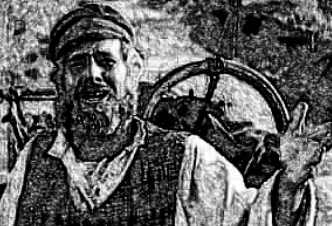 One was Jimmy Begley, the other was Conal, a.k.a. The Wild Colonial Boy, but generally referred to, often in tones of great and justifiable awe and admiration, as 'The Colonial'.
One was Jimmy Begley, the other was Conal, a.k.a. The Wild Colonial Boy, but generally referred to, often in tones of great and justifiable awe and admiration, as 'The Colonial'.
It was said of Jimmy Begley that he point-blank refused to purchase any license, tax or insurance for any vehicle. The Colonial, they said, did get them, but only one of each, despite having, was it ?half a dozen trucks on the road at any time. What delighted us all was that they both got away with it, again and again and again, even if it meant that Jimmy had to physically fight his way out of a Garda barracks cell on at least one occasion. Otherwise, they were both the most agreeable of fellows, charming in the extreme. It was universally agreed that, no matter what abuse any of the gardai poured on his head, calling him every kind of bleepiddy-bleepiddy-bleep, not to mention —-ing —-er, —ing —-ard and worse, Jimmy would simply smilingly agree, 'Ah, but you are right, Garda! That is exactly what I am!' without ever taking the very slightest offense. And why would he, when he could commit any offense under the sun, it seemed, and get clean away with it? Oddly enough, Jimmy’s two farmer brothers were the most upright and law-abiding of citizens… As for 'The Colonial', he showed the medical profession the same benevolent but utter disrespect he showed the law, and every other supposed authority. I was messing with some cattle in a very dark little cow byre near Fintown one midday when a great shaggy head blotted out most of what little light was managing to get in, and the cheeriest tones I had ever heard filled the air. 'Waal, I have no idea who y’are, young man, but ye have a Roscommon man’s head on ye, so ye do, Sir!' He told me who he was then. Mirth and joy instantly flooded the dark cow byre. It was the bould Conal himself! I laughed out loud. 'You may be absolutely right, for all I know! I was always told my dad was a Longford man, you know, but, who knows, and those two counties are cheek by jowl, you know!' 'You are right, Sir, for which of us does know his father, right enough!' Conal was soon telling us about his recent visits to Letterkenny General Hospital. 'Aye, waal, it aal started wuh me havin’ these wee turns the while I was drivin’, ye say. Ah, the sweat, sir, it wud fair come over me, sir, an’ twas aal I cud do tay keep yon truck on the road, for thar were this torrible pain in mah ches’ so thar were. Ah, after it heppenin’ tay me a half a dozen a’ times, ah tuk me alaang tuh me doctor, sir, an’ he, he sent me staright alaang tay Letterkenny, so he dud.' The doc thar, he had me weighed and tuk me blood pressure an aal and says he tay me, Mr McDevitt, tell me, how much do you drink, sir?’ An Ah says, ‘Doctor, I do drink a bottle a whiskey on a bad day, an’ maybe two on a good ‘un, sir!’ ‘And smoking?’ says he, “do you smoke, too, Mr McDevitt?’ An Ah says, 'Oh, aye, about three to four packs a day, Doc.’ An, man, ya shudda seen the luk he guv mah! 'Well, McDevit't, says he, ‘yuh’ll need to cut both right out, completely,’ says he, ‘for yuh have wan verrah serious heart condition on ye, Dangina, so ye have!’ says he. Waal, I was back in there again with him for a check-up yesterday an’ he says to me, he says, ‘Waal, McDevitt, I hope ye tuk and follied me advice, did ye?’ ‘What advice was that, Doc?’ says I, innocent like. ‘I hope ye cut out all the whiskey and them cigarettes, like I tault ye’ says he, aal serious. ‘Ah, doctor,’ says I, ‘not a bit a me. An’, there’s no point in me jestin’ nor jokin’ nor lyin’ nor pretendin’ to ye, Ah have not the laste intention of ever cuttin’ back on any one o’ the two o’ them, so ye may as well not be wastin’ your breath on me, for I am not worth it, Sir, an’ there’s no point in tryin’ to teach an old dog new tricks.’ Arrah, the poor man, shur aal he cud do was laugh at me, so he did, at that. And the nurse alaang with him! It was absolutely impossible not to laugh at The Colonial, or even at the memory of him. |

View the Archive of Irish Phrases here: http://www.ireland-information.com/irishphrases.htm |

|
The winner was: karenbrophy101@gmail.com who will receive the following: A Single Family Crest Parchment (usually US$29.99) Send us an email to claim your Parchment, and well done! Remember that all subscribers to this newsletter are automatically entered into the competition every time. I hope that you have enjoyed this issue! 
by Michael Green, Editor, The Information about Ireland Site. https://www.ireland-information.com Contact us (C) Copyright - The Information about Ireland Site, 2023. 17 Páirc Ghrainbhil, Carraig Dubh, Contae Baile Átha Cliath, Ireland Tel: 353 1 2893860 |

|
MARVELOUS GIFTS FOR ANY OCCASION FREE DELIVERY TO YOUR DOOR 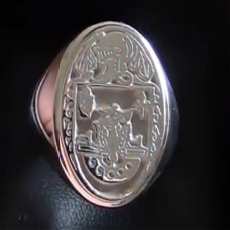
BIG REDUCTIONS! Stunning Family Crest Signet and Seal Rings 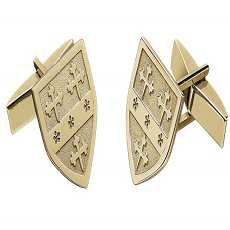
DISCOUNTED FOR A LIMITED TIME Elegant Cufflinks 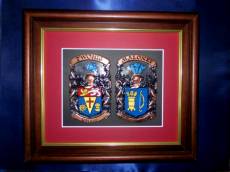
Incredible Family Crest Plaques Made in Ireland 
Superior Framed Family Crest Parchments 
Gorgeous Glistening Galway Crystal 'Your-Name' Old Irish Sign NEW DESIGNS! 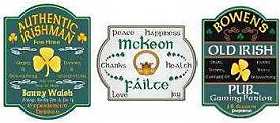
From US$34.99 - Free Delivery 
New Designs available on our Coffee Mugs 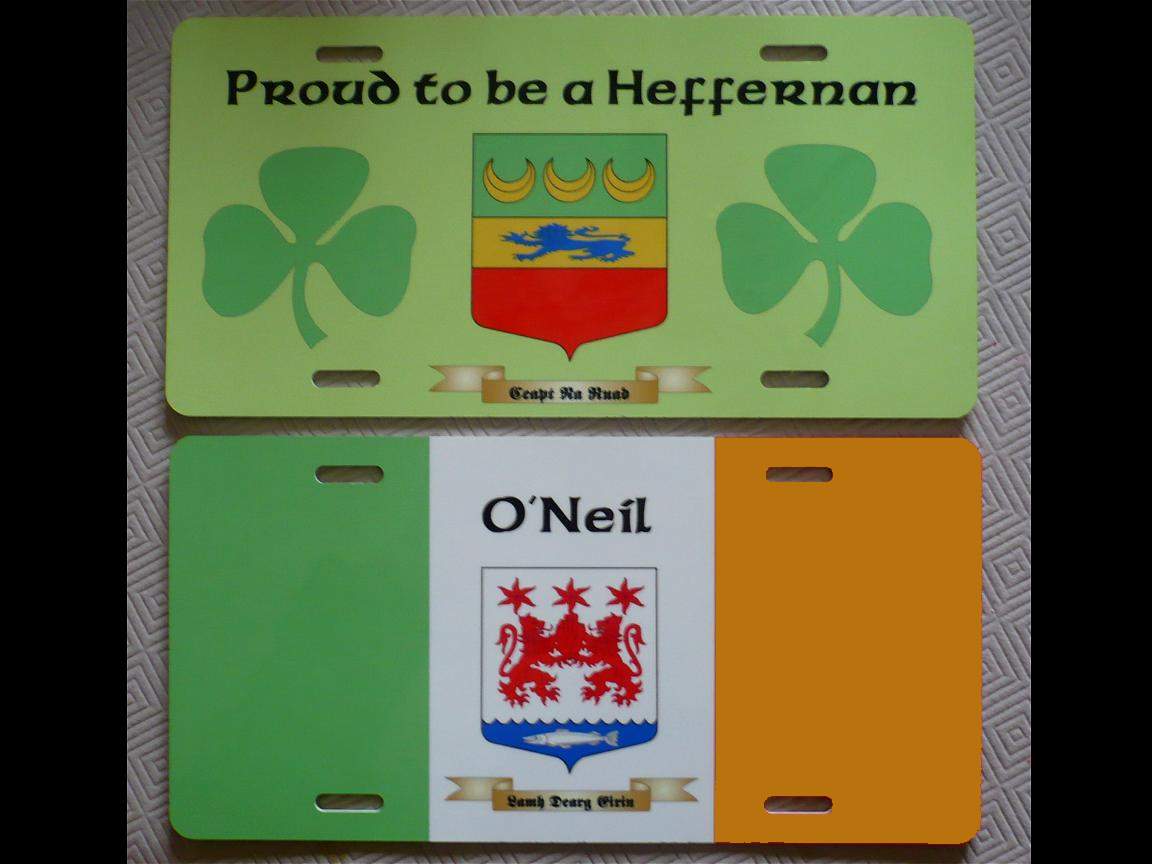
Personalized Licence Plate 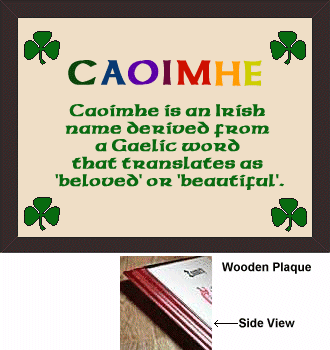
Personalized First Name Plaque. Great for Kids! 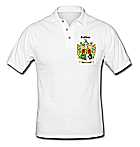
'Your-Name' Polo & Tee Shirts 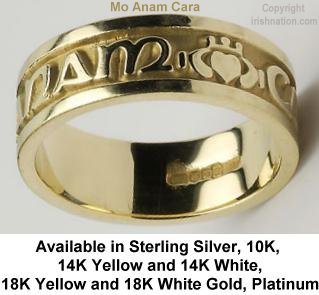
From US$69 Delivered BIG REDUCTIONS! Stunning Engraved Rings from Ireland with Irish Language Phrases. Mo Anam Cara: My Soul Mate Gra Dilseacht Cairdeas: Love, Loyalty, Friendship Gra Go Deo: Love Forever Gra Geal Mo Chroi: Bright Love of my Heart SEE MORE GREAT OFFERS AND DISCOUNTS AT: IRISHNATION.COM FREE DELIVERY FOR A LIMITED TIME! |
